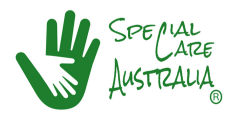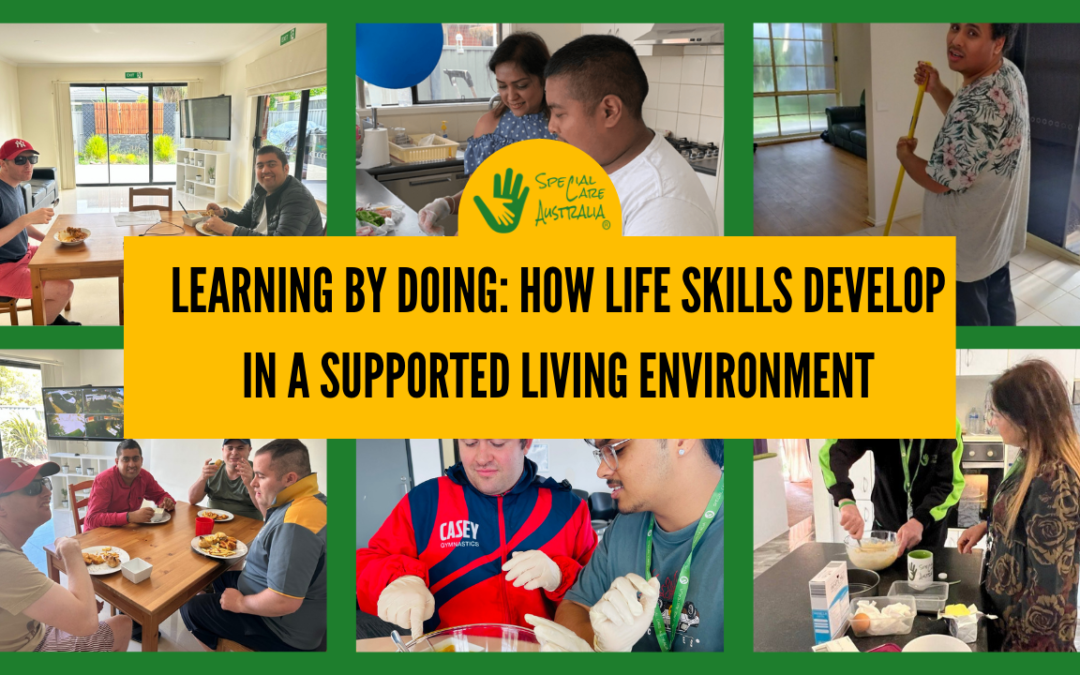As a life-changing approach, supported independent living (SIL) enables individuals with disabilities to live an independent and fulfilling life. By providing the necessary tools, resources, and support, SIL programs aid people with disabilities in achieving their life goals. The National Disability Insurance Scheme (NDIS) provides funding for disability support services, which includes life skills training and programs.
What Are Life Skills?
Life skills are necessary for a person to efficiently manage common responsibilities and tasks in their day-to-day life. These skills prepare people with disabilities to take care of themselves, solve everyday problems, and interact with others effectively. They also enable individuals to navigate the demands and challenges of daily life efficiently. Examples of life skills include
-
Domestic skills such as cooking, cleaning and running errands
-
Social skills
-
Work skills
-
Communication skills
-
Mobility skills
Why Are Life Skills Important?
Developing key life skills empowers individuals with disabilities to live autonomously while being fully involved in the community they live in. Having the necessary life skills allows NDIS participants to maintain their homes, find job opportunities, and build positive relationships with others. Life skills also help people with disabilities deal with hardships and overcome challenging circumstances. Developing life skills can help NDIS participants with:
-
Taking care of their own support requirements
-
Living autonomously
-
Engaging more in the community they live in
-
Attaining their life goals
How SIL Helps with the Development of Key Life Skills
Here is how supported independent living programs and activities facilitate the development of important life skills:
-
Assessment and Goal Establishment: Assessing the participants’ existing life skills and identifying areas for improvement. Establishing goals with them based on their unique needs and aspirations.
-
Daily Living Skills: Offering assistance with routine personal care, such as hygiene, grooming, and dressing. Teaching and helping participants practice meal preparation and cooking. Assisting them in developing skills to maintain a clean home and perform chores efficiently.
-
Communication Skills: Helping participants improve their verbal and non-verbal communication skills, and providing support for using alternative communication methods if required.
-
Social Skills: Creating opportunities for NDIS participants to interact socially while helping them to develop social skills. Organising group activities to facilitate relationship-building and community involvement
-
Community Engagement: Supporting participants in engaging with community activities, events, gatherings, and outings. Developing skills to use public spaces and transportation independently.
-
Financial Management: Educating participants on money management and budgeting. Supporting them to become financially literate and develop responsible spending habits.
-
Health and Well-being: Teaching people with disabilities to efficiently use public transportation and supporting them in developing the skills to travel independently and safely.
-
Decision-Making and Problem-Solving Skills: Offering assistance in developing decision-making and critical thinking skills. Encouraging participants to independently identify problems and solve them.
-
Education and Employment: Supporting participants’ skill development and educational endeavours. Assisting with vocational training and job searches.
-
Travel Training:Teaching people with disabilities to efficiently use public transportation and supporting them in developing the skills to travel independently and safely.
-
Hobbies and Recreation: Encouraging participants to develop hobbies and interests, join clubs, and participate in recreational activities.
How Special Care Australia’s Supported Independent Living Can Help
As a trusted supported independent living specialist in Australia, Special Care Australia’s SIL services and activities can make all the difference in the lives of people with disabilities in the following ways:
-
Independence: SIL is designed to enable NDIS participants to live a life that aligns with their goals and aspirations. Our support staff ensure that people with disabilities confidently handle day-to-day challenges while embracing every opportunity for personal development and growth.
-
Individualised Support: Our support staff offer bespoke SIL support tailored to meet the participant’s unique needs. Whether the participant requires assistance with daily tasks or more comprehensive support, including short-term accommodation, our staff is readily available.
-
Community Inclusion: Our SIL services promote meaningful relationship building and community involvement. Our team helps people with disabilities easily access local events, clubs, and activities so they can engage fully and build strong connections within their community.
-
Peace of Mind: Our experienced support staff offer compassionate and dependable support, giving you the peace of mind that your loved one is in good hands. From emotional support and short-term accommodation (STA) to assistance with daily tasks, Special Care Australia enhances the quality of life for your loved ones while simplifying their journey toward achieving independence.
Make the Most of Special Care Australia’s SIL Programs
Want to experience the myriad benefits of Supported Independent Living with Special Care Australia? Visit our SIL page or contact us today to learn more about our disability care and SIL services – and how we can offer customised support to your loved one. We would be more than happy to clear all your doubts or answer any questions you might have while also helping your loved one to get started on their path to greater independence, personal growth and well-being.








